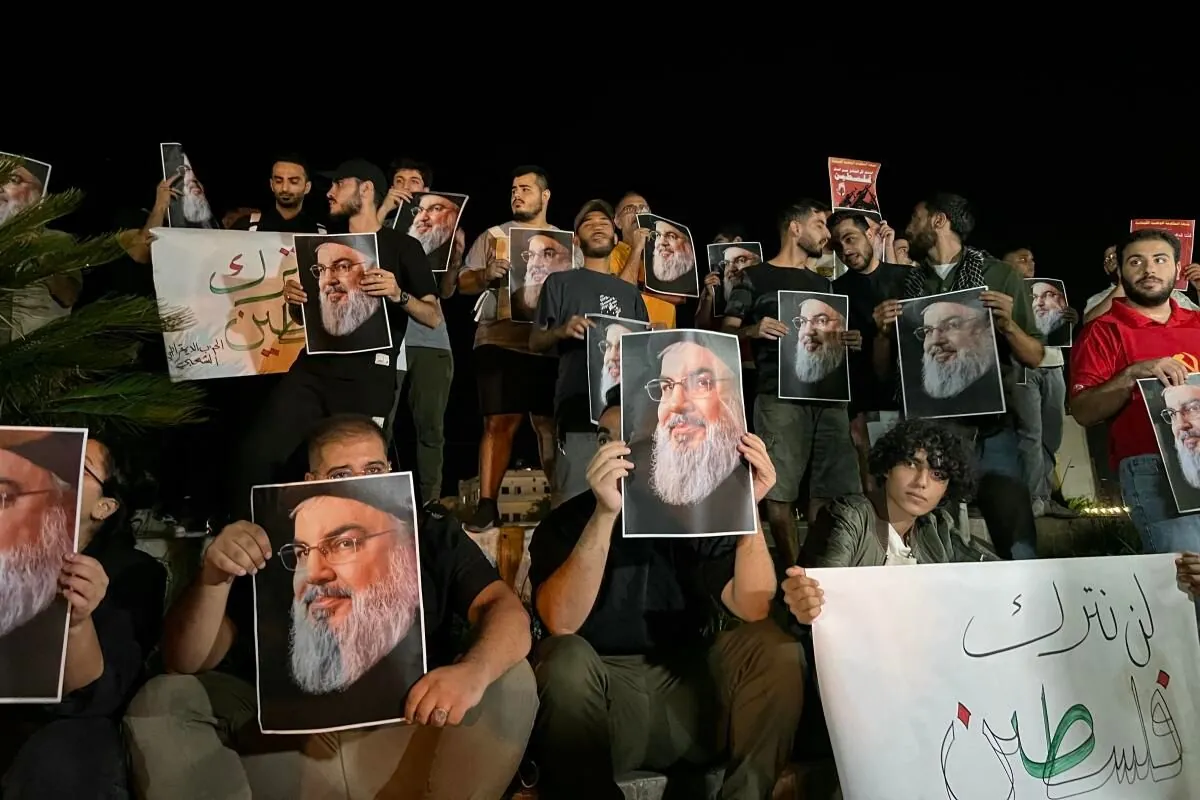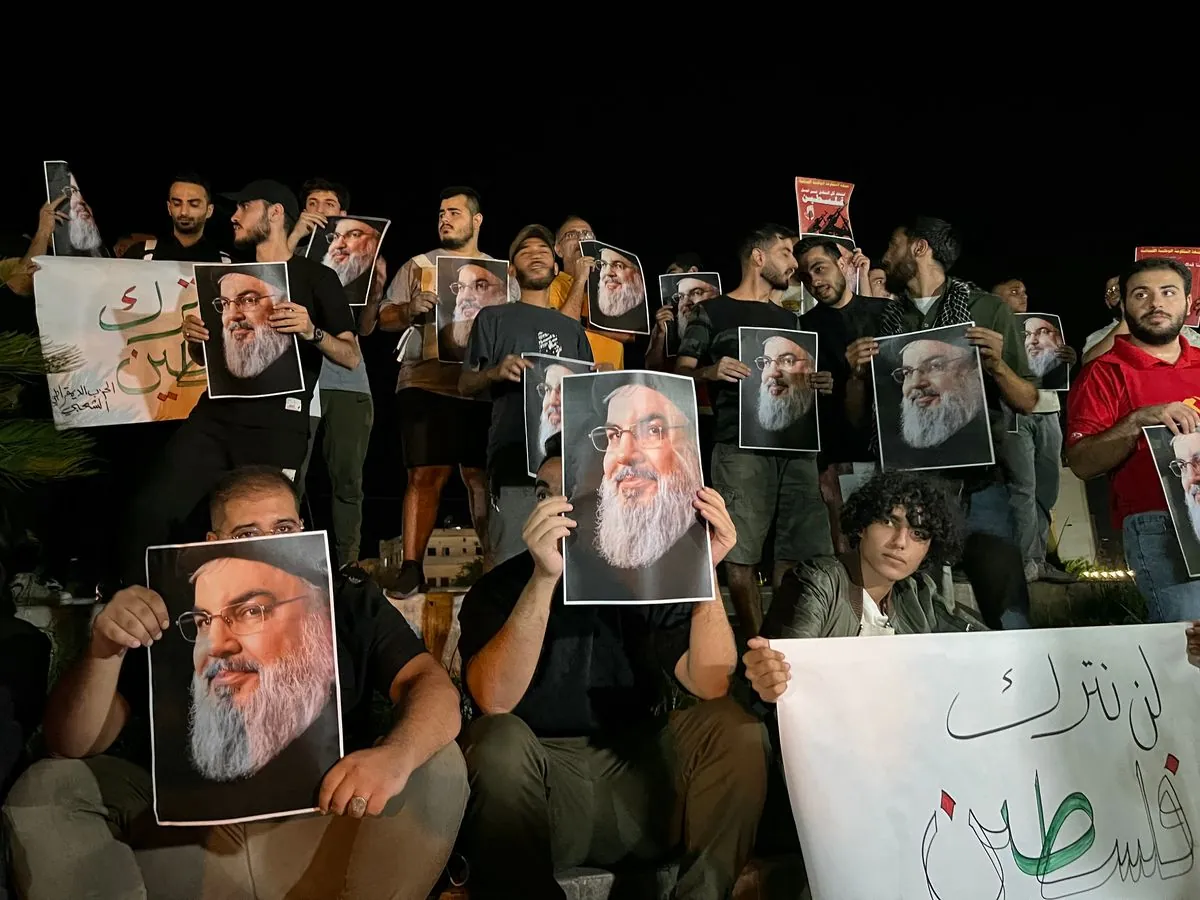Hezbollah Leader's Death Shocks Syria, Highlighting Complex Regional Dynamics
Sayyed Hassan Nasrallah's killing in an Israeli airstrike prompts mourning in Syria. His role in the Syrian civil war and regional politics leaves a complex legacy, impacting Syria's relationships in the Arab world.

The demise of Sayyed Hassan Nasrallah, Hezbollah's leader, in an Israeli airstrike on September 27, 2024, has sent shockwaves through Syria, a country where his organization played a pivotal role during the civil war. Syria has declared three days of national mourning, with flags at half-mast in Damascus on September 29, 2024.
Nasrallah, who led Hezbollah since 1992, was a key figure in the region's complex political landscape. Hezbollah, founded in 1985 during the Lebanese Civil War, evolved into a significant military and political force, with an estimated 20,000-30,000 fighters in its military wing.
Syria's President Bashar al-Assad stated that Nasrallah would "remain in the memory of Syrians," highlighting the strong ties between Hezbollah and the Syrian government. This relationship deepened during Syria's civil war, which began in March 2011 as part of the Arab Spring uprisings.
Initially calling for reform in Syria in 2012, Nasrallah shifted Hezbollah's stance by 2013, committing to fight alongside Assad's forces. This intervention, along with support from Iran and Russia, proved crucial in several battles, particularly along the Lebanese-Syrian border.
Damascus residents expressed mixed emotions about Nasrallah's death. Marwa Barkouka said, "He can't die. He always dreamed of martyrdom, and while this is fitting, it's still so hard to accept." This sentiment reflects the concept of martyrdom's significance in Shia Islam, a core aspect of Hezbollah's ideology.

However, Hezbollah's involvement in Syria strained relationships with Sunni Arab nations, exacerbating sectarian tensions across the region. The Syrian conflict has had devastating consequences, resulting in over 6 million refugees and 6.7 million internally displaced people.
Syria's recent readmission to the Arab League in 2023, after a decade of isolation, marked a shift in regional dynamics. The Arab League ceased labeling Hezbollah a "terrorist organization," although ties with Gulf states remain tense.
The ongoing Gaza war since October 2023 has further complicated the situation, with Nasrallah's death occurring amidst escalating hostilities between Hezbollah and Israel. Israel has conducted numerous airstrikes in Syria, targeting Iranian and Hezbollah positions.
As Syria grapples with the aftermath of a protracted civil war and international sanctions, Nasrallah's death adds another layer of complexity to the region's geopolitical landscape. The impact of his loss on Hezbollah's future operations and Syria's relationships in the Arab world remains to be seen.
"For someone of his stature, the entire Arab nation didn't defend him; they left him. We grew up hearing his voice. We always looked to him to lift our spirits."
This statement reflects the mixed legacy of Nasrallah and Hezbollah in the broader Arab world, highlighting the intricate web of alliances and conflicts that continue to shape the Middle East.


































